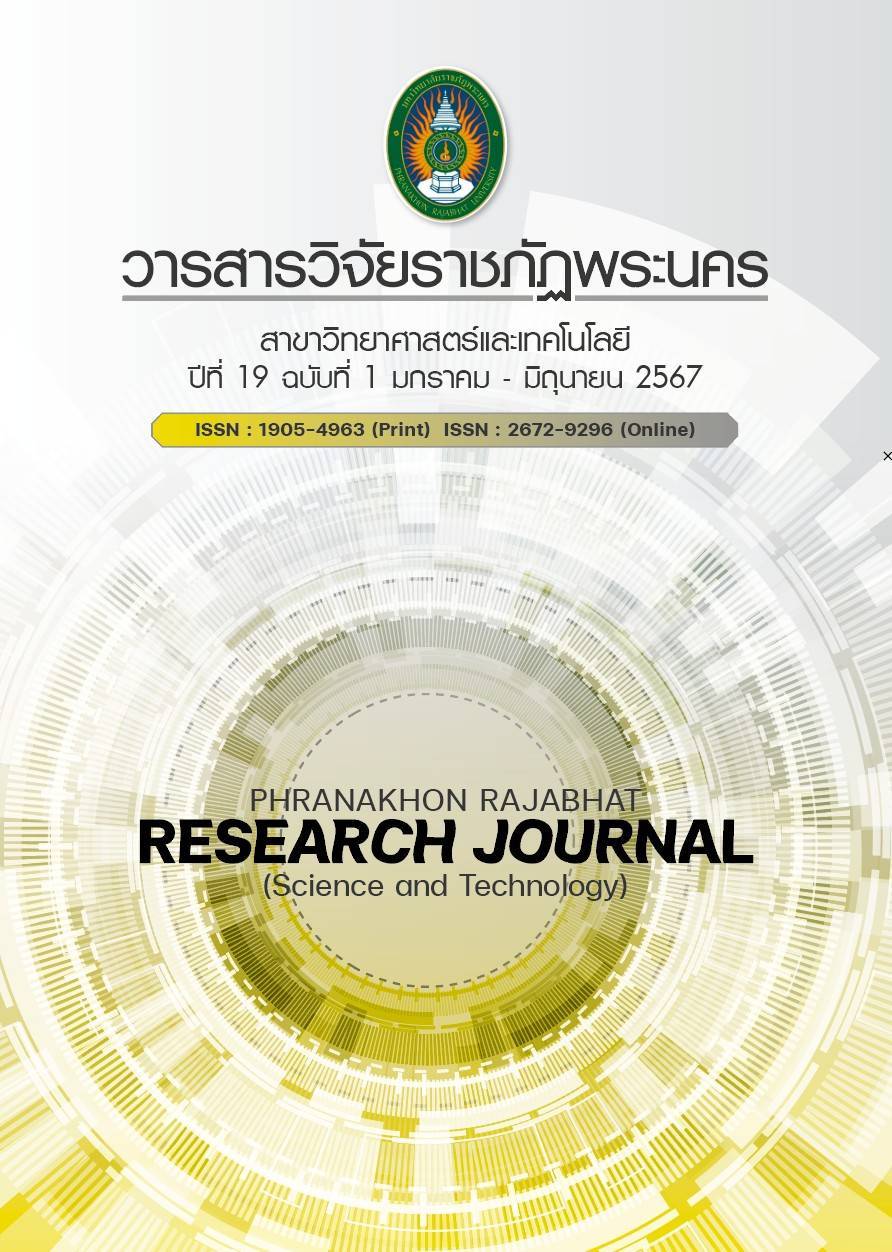THE EFFICACY OF THUNBERGIA LAURIFOLIA’S ROOT TREE CAPSULE TO REDUCE THE AMOUNT OF ALCOHOL IN BREATH
Keywords:
Thunbergia Laurifolia’s Root Tree, Alcohol in Breath, Efficiency of Thunbergia laurifolia rootAbstract
The purpose of this research is to study the efficacy of Thunbergia laurifolia root capsule in reducing
the amount of alcohol breath, and to analyze the amount of alcohol in the breath from the period after drinking. The experimental research was a randomized controlled trial (RCT) and double-blinded clinical trial. The samples consisted of 58 men who were interested in this research in Muang district,
Chachoengsao province, passed all the Inclusion- exclusion criteria and equally (29 persons) divided
by simple random sampling into two groups-experimen and control. The data were collected by
breath alcohol testing. The data were analyzed using a statistical independent samples t-test.
The research findings were as follows: 1) Eating Thunbergia laurifolia root capsule caused the alcohol
content in the breath samples helped decreasing more than those who did not eat the capsule significantly at the level of 0.05. The efficacy of reducing the alcohol content in the sample of the breath was effective from 15 minutes, and could reduce the alcohol content by 66.29% in 2 hours to 93.32%. 2) Eating Thunbergia laurifolia root capsule had the alcohol content in the breath for each period of time, different from those who did not eat the capsule. The experimental group had the highest mean value of 77.32±23.31 mg% and the lowest 5.16±6.34 mg%. The control group had the highest mean value of 71.27±11.97 mg% and the lowest 22.58±6.97 mg%. It was shown that the means, maximum and minimum of each period of the two groups were different at a 95% confidence interval.
References
Akarayapong, P. (2011). Rang Chuet. Retrieved from https://www.ttmed.psu.ac.th/th/blog/68 [2021, 3 Dec.] (In Thai)
Chuthammathat, R. (2010). Thunbergia Laurifolia Lindl. Miracle Plant. Bangkok: Intellectuals.
(In Thai)
Department of Disease Control. (2017). Alcohol and road accidents. Retrieved from http://thaincd. com/document/file/download/leaflet/download1no34.pdf [2021, 3 Dec.] (In Thai)
Ekburanawat, W. (2017). Examination of body alcohol levels in working people. Retrieved from https://www.summacheeva.org/article/alcohol [2021, 3 Dec.] (In Thai)
FDA U.S. Food & Drug. (2018). Step 3: Clinical Research. Retrieved from https://www.fda.gov /patients/drug-development-process/step-3-clinical-research#collapse1 [2021, 3 Dec.]
Kaewkiriya, K. (2017). Effects of Drinking the Water Extracted of Thunbergia Laurifolia LINM. to Reduce the Amount of Alcohol in Breath. Retrieved from http://www.socsci. nu.ac.th/socant2017/downloads/proceeding/031.pdf [2021, 3 Dec.] (In Thai)
Ketaram, K. (2016). The Effect of Yogurt Beverage Consuming to the Quantity Alcohol in Blood Determind with Brethalyzer. (Master's Thesis). Silpakorn University, Bangkok. (In Thai)
Lertpongpipat, W., & Chaiyakhun, D. (2011). Comparison of Effectiveness on Increasing CholinesteraseBlood Level between Thunbergiaceae and Bauhinia strychnifolia Craib in Agriculturists. Journal of the Office of DPC 7 Khon Kaen, 18(3), 49-58. (In Thai)
Maneesen, C. (2020). The Study of Thunbergia laurifolia Lindl. (Rang Jued) Usage as Antidote. Thai Journal of Public Health and Health Sciences, 3(1), 28-40. (In Thai)
Posridee, K. (2012). Sub Chronic Toxicity Studies of Thunbergia Luarifolia Lindl. Extracts in Rats. (Master's Thesis). Suranaree University of Technology, Nakhon Ratchasima. (In Thai)
Puangchaibodin, P. (2019). The Efficiency of Thunbergia Laurifolia Lindl. and Bauhinia Strychnifolia Craib. on Reduction of Blood Alcohol Concentration. (Master's Thesis). Silpakorn University, Bangkok. (In Thai)
Thaicrudegrug. (n.d.). Thunbergia Laurifolia. Retrieved from https://apps.phar.ubu.ac.th/ thaicrudedrug/main.php?action=viewpage&pid=115 [2021, 3 Dec.] (In Thai)
Thepkhun, N., Ngamkajornwiwat, N., Yok-Seng, S., Wasama, W. & Chumanee, P. (2014). Efficacy of Rang Jued tea on Drug Detoxification of Amphetamine patients in Thanyarak Pattani Hospital. Pattani: Thanyarak Pattani Hospital. (In Thai)
Wongwanit, S., & Wiratchai, N. (2003). Thesis Counseling Guidelines. Bangkok: Chulalongkorn University. (In Thai)
Yaithummasarn, P. (2011). Rang Chuet. Medicinal Plant Newsletter, 29(1), 7-17. (In Thai)
Downloads
Published
How to Cite
Issue
Section
License

This work is licensed under a Creative Commons Attribution-NonCommercial-NoDerivatives 4.0 International License.
โปรดกรอกเอกสารและลงนาม "หนังสือรับรองให้ตีพิมพ์บทความในวารสารวิจัยมหาวิทยาลัยราชภัฏพระนคร สาขาวิทยาศาสตร์และเทคโนโลยี" ก่อนการตีพิมพ์




